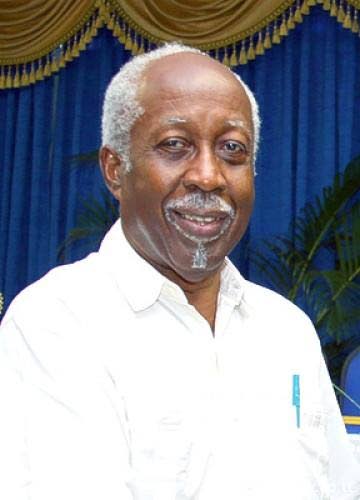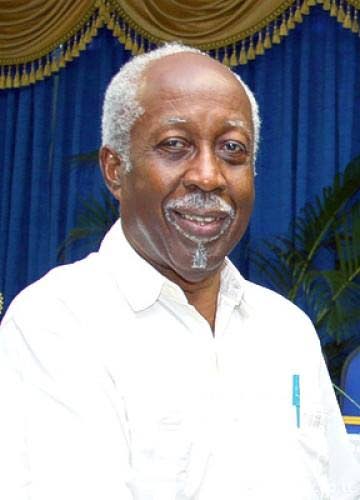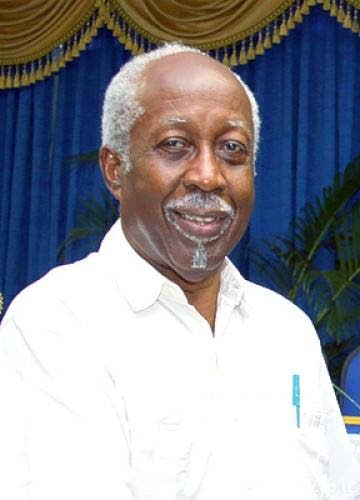Afghan callaloo

REGINALD DUMAS
Pt IV
PRESIDENT Joseph Biden addressed his nation following the August 31 departure from Afghanistan of the last US troops.
He again noted that it was his predecessor, Donald Trump, who had entered into a withdrawal agreement with the Taliban. (But now he added that the accord “included no requirement that the Taliban work out a co-operative governing agreement with the Afghan government.” It wouldn’t have mattered, anyway – by the time the Taliban reached Kabul there was no Afghan government; it had vanished.)
More worryingly, Biden charged that the agreement authorised the release of 5,000 prisoners in 2020, “including some of the Taliban’s top war commanders.” When he took office this year, the Taliban was already “controlling or contesting nearly half of the country.” The choice before him was to honour the agreement or not, to leave or to escalate. He decided to leave, and he took responsibility for the decision.
He would not, he said, send “another generation” of Americans to fight a war that had already cost “more than $2 trillion” and should have ended long ago. America was now moving on from its foreign policy of the last 20 years. The nation-building mindset had to be discarded: the “fundamental obligation of a president…is to defend and protect America against the threats of 2021 and tomorrow.” Missions – missions? – would now be set “with clear, achievable goals” and “stay clearly focused on the fundamental national security interest of the US.”
In that context, America would maintain the fight against terrorism everywhere, and would “hunt down to the ends of the Earth” (a Bush-inspired phrase) countries that wished it harm; they would “pay the ultimate price.” This fight wouldn’t necessarily need US boots on the ground, because the US had “over-the-horizon capabilities” – a technological caution – to strike at the enemy.
As expected, Biden dealt with the evacuations from Afghanistan, and, equally as expected, highly praised the US military, diplomats and intelligence professionals who had carried out this “mission of mercy.” The US had brought out thousands of its citizens and, with its partners, 100,000 Afghans. It was committed to removing its few remaining citizens who might wish to leave, and it was “far from done” where Afghans were concerned.
He disagreed with those who said the evacuations should have begun earlier and “in a more orderly manner.” Starting sooner, there “still would have been a rush to the airport (and a) breakdown in confidence…” The US had assumed “that the Afghan government would be able to hold on for a period of time beyond military drawdown…” That assumption proved wrong, but the US “had prepared for every eventuality, even that one…So we were ready when the Afghan forces…did not hold on as long as anyone expected.”
The US would continue to help the Afghan people “through diplomacy, international influence and humanitarian aid…(and) speak out for their basic rights, especially (those of) women and girls…” And then: “(H)uman rights will be the centre of our foreign policy, through diplomacy, economic tools and rallying the rest of the world for support.”
Issues arise. First, I agree with Biden that the February 2020 Taliban/Trump agreement favoured the Taliban. And bear in mind that it committed the US to withdraw all foreign troops, advisers, contractors, etc.
Second, I also agree with a US withdrawal from Afghanistan. I don’t think, however, that the word “withdraw” can be taken literally, because the “over-the-horizon capability” will almost certainly be used in future. (In fact, it’s been used already, against ISIS-K.) If you’re going to “hunt (people) down” and make them “pay,” even your drone of death means you’re probably in their territory.
Third, how does the US propose to evacuate Americans and Afghans still stuck in Afghanistan? What happens if the Taliban insist that no more Afghans leave?
Fourth, how will the Afghan people benefit from the promised international “support” if the Taliban disapprove?
Fifth, if the US was indeed “ready” for the possibility of the early evaporation of the Afghan forces (Secretary of State Antony Blinken had previously spoken of their “anticipated” disintegration), why the chaos at Kabul airport?
Sixth, on what criteria is a threat to US national security determined? Does Cuba, for instance, satisfy them? I doubt it. But even if that were so, why not employ “over-the-horizon capabilities” instead of retaining a physical US presence in Guantánamo? Surely not to continue holding 9/11 suspects (Afghans among them) without charge, let alone trial? What of their human rights?
Seventh, Biden referred to a UN Security Council resolution of August 30 mentioning Taliban “commitments.” The Taliban did indeed make some soothing statements on August 27. Were they “commitments?”
There are more questions, but I must say something about the Taliban.




Comments
"Afghan callaloo"